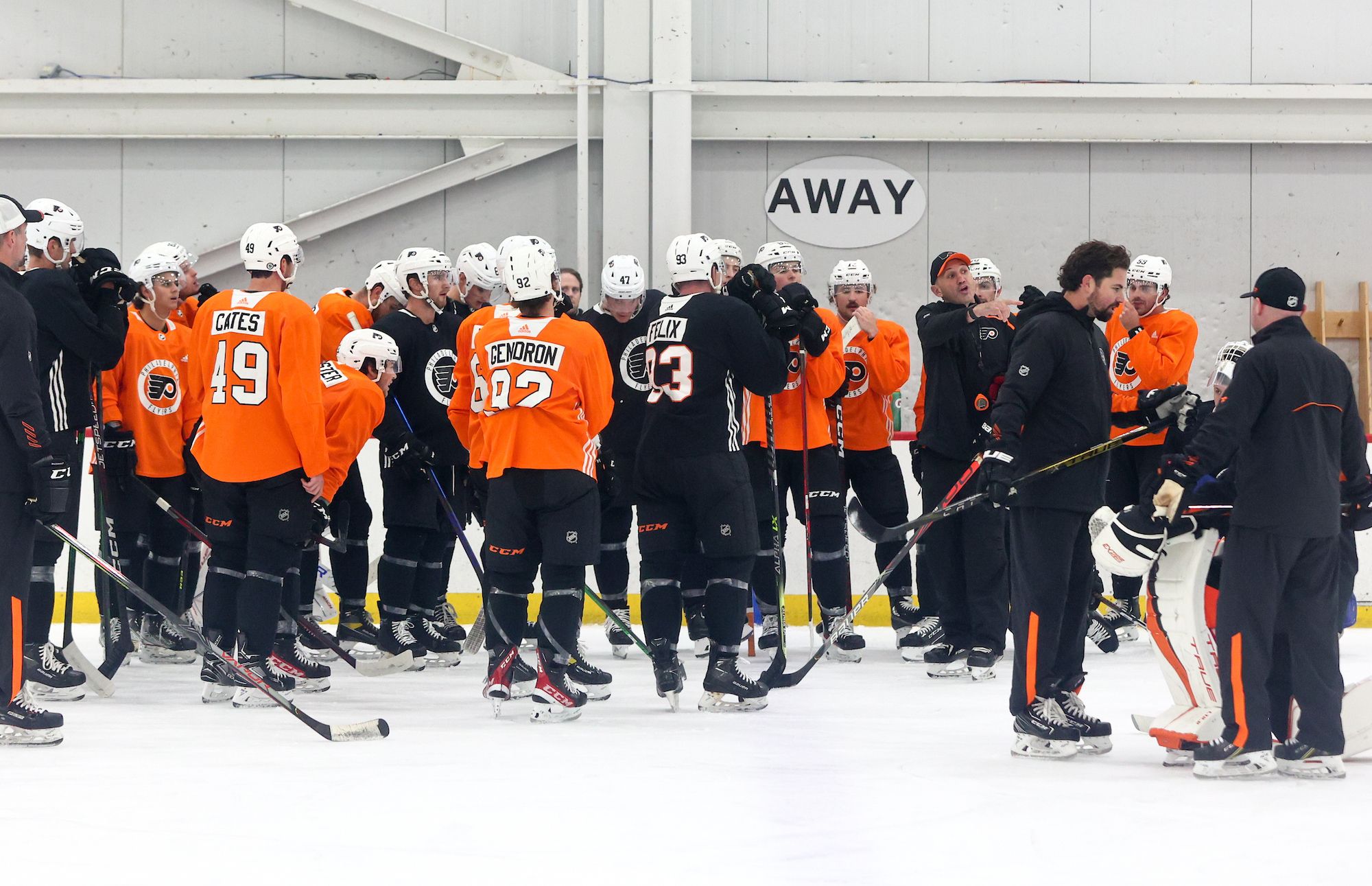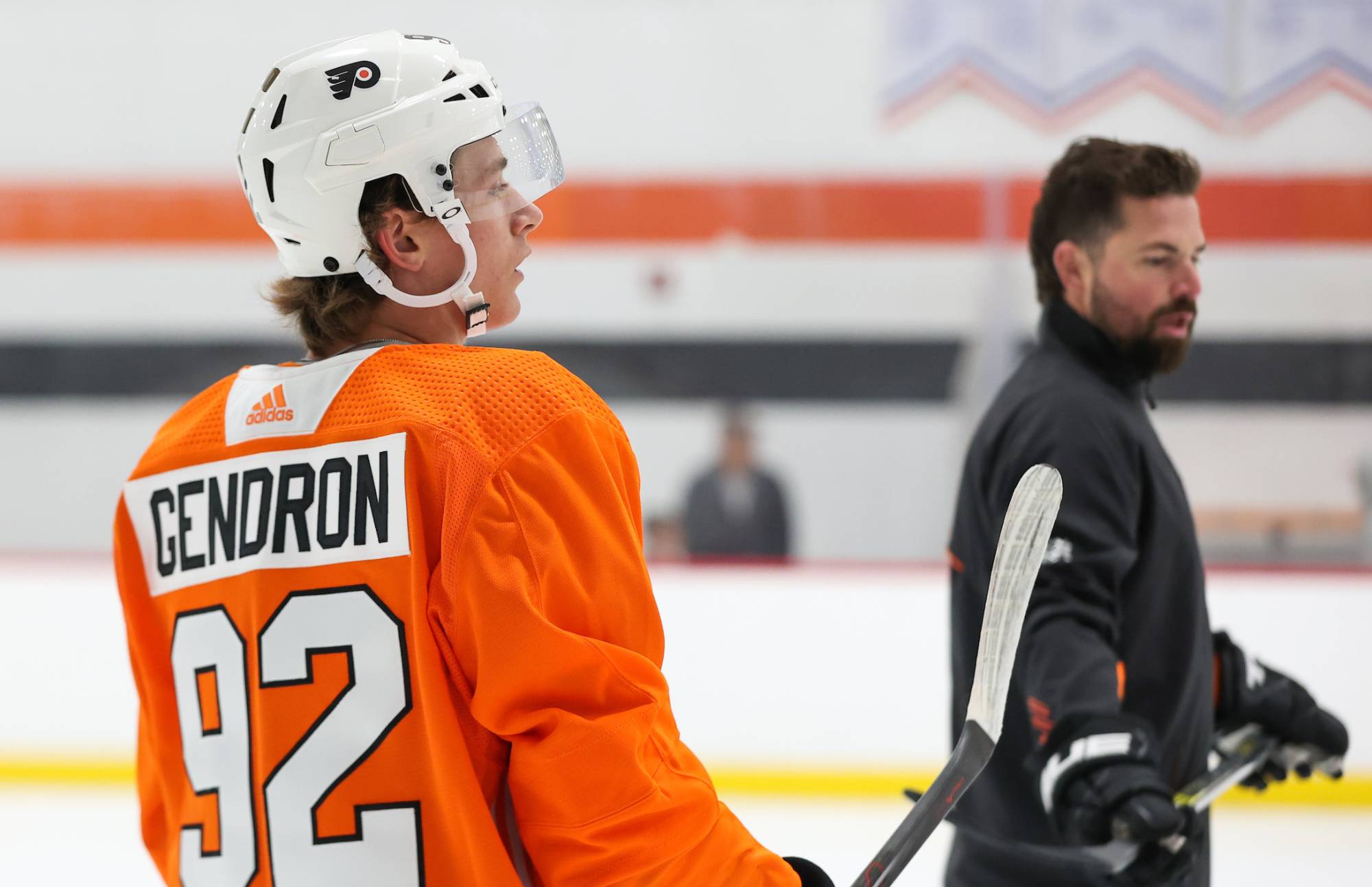On the eve of the trade deadline, the Flyers made their first big move, trading Matt Mangene, a 2014 3rd Round Pick and a 2015 2nd Round Pick for New York Islanders defenseman Andrew MacDonald.
 Must Reads
Must Reads 
Immediately, there was an uproar — after all, MacDonald’s possession statistics are among the worst in the NHL this season. At BSH, we made our opinion on MacDonald clear last week, pushing for the Flyers to stay away from the 27-year old defenseman.
But the Flyers did not heed that advice. The front office and coaching staff clearly believe that MacDonald can help the team in their push towards a playoff spot this season.
So what positives does Andrew MacDonald bring to the table? Are there any reasons for optimism regarding this trade?
1) MacDonald is a solid skater
Considering his poor possession statistics, some have jumped to the conclusion that Andrew MacDonald is a stay-at-home defenseman in the Nicklas Grossmann or Douglas Murray mold. Many have wondered why the Flyers would acquire yet another slower, one-dimensional defenseman considering the presence of Grossmann and Luke Schenn on the roster.
But unlike Grossmann and Schenn, MacDonald actually has plus skating ability.
The Hockey News‘ scouting report is complementary of MacDonald’s offensive talents, and even praises him for his puck moving skills.
Assets: Moves the puck out of the defensive zone efficiently. Is a poised defender with a good hockey brain who can log an awful lot of ice time. Smart and technically strong, he also has some offensive ability.
ESPN and Hockey Prospectus writer Corey Pronman, who utilizes a combination of statistical analysis and first-hand scouting regularly in his pre-draft evaluations, concurred with this assessment via Twitter last week.
@fearthefin Evaluate his abilities? Very good skater, pretty smart player. I’m willing to accept he’s over played, but not a 3rd pair D.
Pre-trade, the Flyers defense consisted of two poor skaters, two average skaters (Streit & Meszaros), one skater who has seen his acceleration sapped by age and injuries (Timonen), one plus skater who lacks consistent offensive instincts (Coburn), and one plus skater who is played by the coaching staff only sporadically (Gustafsson). In other words, they could certainly use an infusion of speed.
MacDonald does add that speed to the back-end, and will not simply bring the skillset of another pylon to the Philadelphia defense. His effectiveness may be in question, but don’t expect to see an immobile defenseman on Wednesday when he makes his debut.
2) His statistics weren’t always this bad
It’s undeniable that Andrew MacDonald’s possession statistics this season have been terrible. His Corsi-for percentage (which tracks how much a player controls the puck) ranks 110th out of 115 NHL defenseman that have received at least 750 5v5 minutes this season. His statistics relative to his Islanders teammates are pretty bad as well, which tells us that it’s not simply a case of a “he’s on a bad team” syndrome.
But MacDonald has never been quite this bad before.
Behind The Net luckily provides possession statistics dating back to the 2007-08 season, spanning the entirety of MacDonald’s career. His numbers have steadily declined, but in 2010/11 & 2011/12, the stats have MacDonald as a serviceable third pairing defenseman when looking at Corsi relative to his team.
| Season | Corsi For | Corsi Relative |
| 2013/14 | -14.68 | -20.5 |
| 2012/13 | -6.74 | -10.8 |
| 2011/12 | -6.62 | -2.5 |
| 2010/11 | -9.40 | 1.2 |
| 2009/10 | -5.83 | -3.7 |
There’s a definite decline here, and his last two seasons have been his worst. But he has shown the ability to post passable possession statistics in the past, and MacDonald isn’t particularly old (27), so age is likely not the main reason why his numbers have fallen off a cliff during the past two seasons.
So what could be the reason for MacDonald’s dramatic dropoff?
3) MacDonald received really difficult minutes with the Islanders — and a lot of them
If you’re rooting for the MacDonald trade to be a win for the Flyers (and we’re all Flyers fans, so of course we are), this is likely what gives you hope.
The Islanders have given MacDonald 19+ minutes of 5v5 ice time for the past three seasons, matching up with the three seasons of steady decline from his 2010/11 possession peak.
This year, MacDonald ranks 12th in the league among defensemen in 5v5 ice time per game, at 19:23 minutes per game. He’s 8th in total minutes per game at 25:25.
In addition, he’s led the Islanders in CorsiRel Quality of Competition (which, despite its complicated name, simply ranks the difficulty of a players’ opponents) in three out of his last four seasons. When the Islanders are facing off against the best possession lines, MacDonald has been the most likely defenseman to get the call. Sidney Crosby, Rick Nash, Alex Ovechkin, Claude Giroux. MacDonald has played against them frequently.
 Full Deadline Coverage
Full Deadline Coverage 
 Full Deadline Coverage
Full Deadline Coverage 
In Philadelphia, MacDonald will have a chance to make the case that high quality competition and heavy minutes helped cause his poor numbers, as he won’t be leaned upon nearly as much here as he was in New York.
MacDonald will almost definitely slot in behind Braydon Coburn & Mark Streit in terms of 5v5 ice time, and possibly Nicklas Grossmann. Kimmo Timonen, considering his minutes on the power play and on the penalty kill, will likely beat him in overall time on ice per game as well.
MacDonald could be paired with his former teammate Streit on the second pairing at even strength, or even could be used on the third pairing if the Flyers continue to keep Grossmann with Streit.
Regardless, MacDonald will not be a top pair defenseman in Philadelphia, at least not this season. The optimist’s take would be that weaker competition plus less minutes should equal a better-rested, more efficient Andrew MacDonald.
Of course, the most recent work from Eric T. holds that the effect of quality of competition on individual players over time is overstated. But for a player used in such extreme situations (and given tons of minutes) by his team who might not have the skillset to justify the usage, maybe the effect of lesser minutes will be more pronounced.
The statistics may tell one story for Andrew MacDonald, but he’ll now have the opportunity to write a new one with the Flyers.









